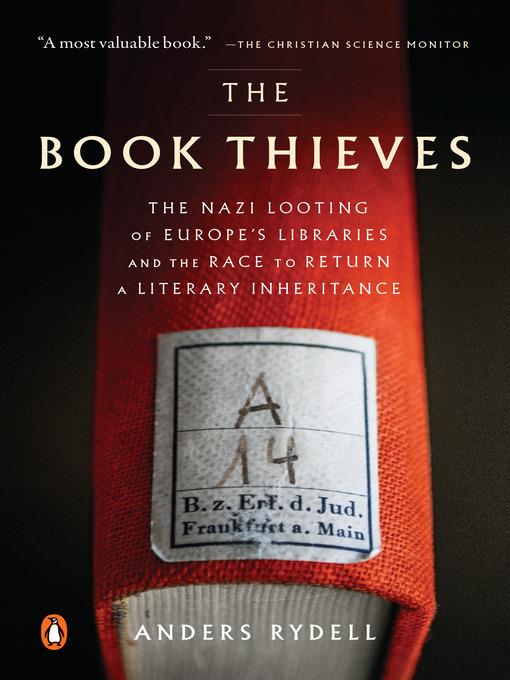
The Book Thieves
The Nazi Looting of Europe's Libraries and the Race to Return a Literary Inheritance
کتاب های مرتبط
- اطلاعات
- نقد و بررسی
- دیدگاه کاربران
نقد و بررسی

Starred review from November 15, 2016
An erudite exploration of the systematic plundering of libraries and book collections by Nazi invaders.Looting books by mainly Jewish owners, collections, and libraries was an effective way of stealing Jewish memory and history, as this thorough work of research by Swedish journalist and editor Rydell attests. From early bonfires of objectionable publications (by Thomas Mann and Stefan Zweig, among others) in Berlin in May 1933, staged by enthusiastic German student federations, to the desecration of synagogues and sacred texts on Kristallnacht to the methodical plundering of libraries in occupied areas during the war, Rydell ably delineates the spiraling destruction, city by city: Berlin, Munich, Amsterdam, Paris, Rome, Thessaloniki, Vilnius, Prague, etc. The Nazis believed libraries needed to be "cleaned up" and "un-German" literature destroyed--i.e., "degenerate," "Communist," Free Mason, and "Jewish" works. As the author emphasizes, however, the Nazis were not anti-intellectual; on the contrary, they were building a whole new "intellectual being, who did not base himself on values such as liberalism and humanism, but rather on his nation and race." The most valuable books (e.g., antique and medieval works) were claimed by chief Nazi ideologue Alfred Rosenberg's plundering organization, ERR, which grew into a frightening international organization focused on confiscating "thoughts, memories, and ideas" and enlisted intellectuals and academics as librarian foot soldiers. Rydell considers the millions of volumes confiscated, such as the priceless Yiddish library in Vilnius, essentially the repository for Ashkenazi history and culture. In the "model" concentration camp Theresienstadt, Hebrew scholars were saved from immediate murder by being forced to catalog the thousands of confiscated books in what was called the Talmud Command. Rydell visited many of the rehabilitated libraries (which are still sorting the stolen books), and he traces some of the volumes that have since been returned, such as a cherished book belonging to Berliner Richard Kobrak, deported with his wife to the gas chambers in Auschwitz in 1944.An engrossing, haunting journey for bibliophiles and World War II historians.
COPYRIGHT(2016) Kirkus Reviews, ALL RIGHTS RESERVED.

September 15, 2016
The Nazis didn't just burn books. They also looted millions of volumes from Jewish institutions and both public and private libraries, creating their own vast collection as the basis of rewriting history. Now, a small team at Berlin's state library is working to find and return the purloined titles.
Copyright 2016 Library Journal, LLC Used with permission.

























دیدگاه کاربران